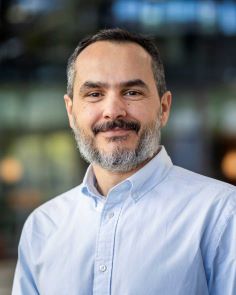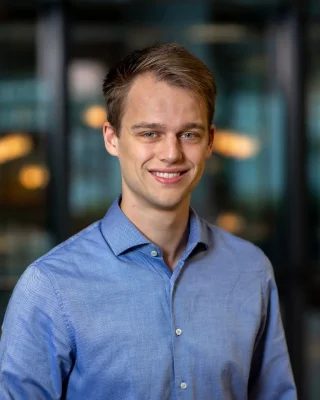Project: Equivariant Neural Simulators for Probabilistic Fluid Dynamics Simulation
Description

TL;DR: In this project, you will focus on developing a model architecture that can efficiently simulate fluid dynamics, while taking into account the vast amount of domain knowledge in the field in the form of symmetries, as well as the modeling of stochastic effects and model uncertainty.
Project description: Fluid dynamics are one of the most challenging problem settings for numerical simulators, due to the need for a very fine-grained discretization of the system in order to accurately resolve the physical phenomena. At the same time, these simulations are ubiquitous in scientific and industry applications, for example in the design of airplanes and in climate modeling. As such, there is a huge demand for surrogate simulation models, which are substantially faster than the high-fidelity counterparts, at the cost of hopefully small errors.
Recently, deep learning has been gaining traction as a tool for learning such surrogate simulators directly from data. These neural simulators can simulate orders of magnitude faster, while their errors are relatively low. Interestingly, integrating domain knowledge in the form of physical symmetries into the model’s architecture can substantially improve performance, see e.g. [1, 2]. However, symmetry-informed methods are typically formulated as regression models, which means that they cannot take into account random effects that are often present in real-life systems. On the other hand, the few methods that address the modeling of random effects do not incorporate all physical symmetries; see [3,4] for examples of such methods.
Goals: In this thesis project, you will focus on developing a new model architecture that can perform probabilistic simulation of fluid dynamics while taking the symmetries of the problem into account. One avenue to achieve this could be to take the EPNS framework [5], which we recently developed in our group, as a starting point. However, we encourage you to think out-of-the-box and come up with alternative approaches. To evaluate your method, you can look into fluid dynamics with inherently random effects, like in [3], and/or take a Bayesian perspective and use the learned probability distribution over system evolutions as a tool for uncertainty quantification, like in [4]. If successful, your method can have high-impact downstream applications by enabling data-efficient learning of fast probabilistic fluid dynamics simulation models.
Supervisors: Koen Minartz, Vlado Menkovski.
Required Skills and Background: Proficiency in Python, NumPy/SciPy and PyTorch, as well as knowledge of and experience with deep generative models (for example from 2AMM10 and/or 2AMU20). Some background in physics is beneficial but not necessary.
References:
[1] Rui Wang, Robin Walters, and Rose Yu. “Incorporating symmetry into deep dynamics models for improved generalization”. In International Conference on Learning Representations, 2021. https://arxiv.org/abs/2002.03061
[2] Jacob Helwig, Xuan Zhang, Cong Fu, Jerry Kurtin, Stephan Wojtowytsch, and Shuiwang Ji. “Group Equivariant Fourier Neural Operators for Partial Differential Equations”. In International Conference on Machine Learning, 2023. https://arxiv.org/abs/2306.05697
[3] Cristopher Salvi, Maud Lemercier, and Andris Gerasimovics. "Neural stochastic PDEs: Resolution-invariant learning of continuous spatiotemporal dynamics". In Advances in Neural Information Processing Systems, 2022. https://proceedings.neurips.cc/paper_files/paper/2022/hash/091166620a04a289c555f411d8899049-Abstract-Conference.html
[4] Maximilian Mueller, Robin Greif, Frank Jenko, and Nils Thuerey. “Leveraging stochastic predictions of Bayesian neural networks for fluid simulations”. In NeurIPS 2022 Workshop on Machine Learning and the Physical Sciences, 2022. https://arxiv.org/abs/2205.01222
[5] Koen Minartz, Yoeri Poels, Simon Koop, and Vlado Menkovski. “Equivariant Neural Simulators for Stochastic Spatiotemporal Dynamics.” arXiv preprint, 2023. https://arxiv.org/abs/2305.14286
Details
- Supervisor
-
 Vlado Menkovski
Vlado Menkovski
- Secondary supervisor
-
 Koen Minartz
Koen Minartz
- Interested?
- Get in contact